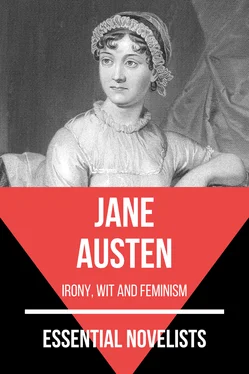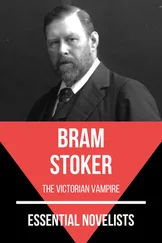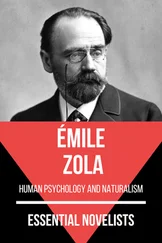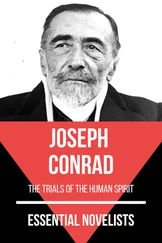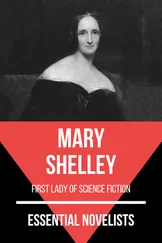At length there was nothing more to be said; the ladies drove on, and the others returned into the house. Mr. Collins no sooner saw the two girls than he began to congratulate them on their good fortune, which Charlotte explained by letting them know that the whole party was asked to dine at Rosings the next day.
––––––––
MR. COLLINS'S TRIUMPH, in consequence of this invitation, was complete. The power of displaying the grandeur of his patroness to his wondering visitors, and of letting them see her civility towards himself and his wife, was exactly what he had wished for; and that an opportunity of doing it should be given so soon, was such an instance of Lady Catherine's condescension, as he knew not how to admire enough.
"I confess," said he, "that I should not have been at all surprised by her ladyship's asking us on Sunday to drink tea and spend the evening at Rosings. I rather expected, from my knowledge of her affability, that it would happen. But who could have foreseen such an attention as this? Who could have imagined that we should receive an invitation to dine there (an invitation, moreover, including the whole party) so immediately after your arrival!"
"I am the less surprised at what has happened," replied Sir William, "from that knowledge of what the manners of the great really are, which my situation in life has allowed me to acquire. About the court, such instances of elegant breeding are not uncommon."
Scarcely anything was talked of the whole day or next morning but their visit to Rosings. Mr. Collins was carefully instructing them in what they were to expect, that the sight of such rooms, so many servants, and so splendid a dinner, might not wholly overpower them.
When the ladies were separating for the toilette, he said to Elizabeth—
"Do not make yourself uneasy, my dear cousin, about your apparel. Lady Catherine is far from requiring that elegance of dress in us which becomes herself and her daughter. I would advise you merely to put on whatever of your clothes is superior to the rest—there is no occasion for anything more. Lady Catherine will not think the worse of you for being simply dressed. She likes to have the distinction of rank preserved."
While they were dressing, he came two or three times to their different doors, to recommend their being quick, as Lady Catherine very much objected to be kept waiting for her dinner. Such formidable accounts of her ladyship, and her manner of living, quite frightened Maria Lucas who had been little used to company, and she looked forward to her introduction at Rosings with as much apprehension as her father had done to his presentation at St. James's.
As the weather was fine, they had a pleasant walk of about half a mile across the park. Every park has its beauty and its prospects; and Elizabeth saw much to be pleased with, though she could not be in such raptures as Mr. Collins expected the scene to inspire, and was but slightly affected by his enumeration of the windows in front of the house, and his relation of what the glazing altogether had originally cost Sir Lewis de Bourgh.
When they ascended the steps to the hall, Maria's alarm was every moment increasing, and even Sir William did not look perfectly calm. Elizabeth's courage did not fail her. She had heard nothing of Lady Catherine that spoke her awful from any extraordinary talents or miraculous virtue, and the mere stateliness of money or rank she thought she could witness without trepidation.
From the entrance-hall, of which Mr. Collins pointed out, with a rapturous air, the fine proportion and the finished ornaments, they followed the servants through an ante-chamber, to the room where Lady Catherine, her daughter, and Mrs. Jenkinson were sitting. Her ladyship, with great condescension, arose to receive them; and as Mrs. Collins had settled it with her husband that the office of introduction should be hers, it was performed in a proper manner, without any of those apologies and thanks which he would have thought necessary.
In spite of having been at St. James's Sir William was so completely awed by the grandeur surrounding him, that he had but just courage enough to make a very low bow, and take his seat without saying a word; and his daughter, frightened almost out of her senses, sat on the edge of her chair, not knowing which way to look. Elizabeth found herself quite equal to the scene, and could observe the three ladies before her composedly. Lady Catherine was a tall, large woman, with strongly-marked features, which might once have been handsome. Her air was not conciliating, nor was her manner of receiving them such as to make her visitors forget their inferior rank. She was not rendered formidable by silence; but whatever she said was spoken in so authoritative a tone, as marked her self-importance, and brought Mr. Wickham immediately to Elizabeth's mind; and from the observation of the day altogether, she believed Lady Catherine to be exactly what he represented.
When, after examining the mother, in whose countenance and deportment she soon found some resemblance of Mr. Darcy, she turned her eyes on the daughter, she could almost have joined in Maria's astonishment at her being so thin and so small. There was neither in figure nor face any likeness between the ladies. Miss de Bourgh was pale and sickly; her features, though not plain, were insignificant; and she spoke very little, except in a low voice, to Mrs. Jenkinson, in whose appearance there was nothing remarkable, and who was entirely engaged in listening to what she said, and placing a screen in the proper direction before her eyes.
After sitting a few minutes, they were all sent to one of the windows to admire the view, Mr. Collins attending them to point out its beauties, and Lady Catherine kindly informing them that it was much better worth looking at in the summer.
The dinner was exceedingly handsome, and there were all the servants and all the articles of plate which Mr. Collins had promised; and, as he had likewise foretold, he took his seat at the bottom of the table, by her ladyship's desire, and looked as if he felt that life could furnish nothing greater. He carved, and ate, and praised with delighted alacrity; and every dish was commended, first by him and then by Sir William, who was now enough recovered to echo whatever his son-in-law said, in a manner which Elizabeth wondered Lady Catherine could bear. But Lady Catherine seemed gratified by their excessive admiration, and gave most gracious smiles, especially when any dish on the table proved a novelty to them. The party did not supply much conversation. Elizabeth was ready to speak whenever there was an opening, but she was seated between Charlotte and Miss de Bourgh—the former of whom was engaged in listening to Lady Catherine, and the latter said not a word to her all dinner-time. Mrs. Jenkinson was chiefly employed in watching how little Miss de Bourgh ate, pressing her to try some other dish, and fearing she was indisposed. Maria thought speaking out of the question, and the gentlemen did nothing but eat and admire.
When the ladies returned to the drawing-room, there was little to be done but to hear Lady Catherine talk, which she did without any intermission till coffee came in, delivering her opinion on every subject in so decisive a manner, as proved that she was not used to have her judgement controverted. She inquired into Charlotte's domestic concerns familiarly and minutely, gave her a great deal of advice as to the management of them all; told her how everything ought to be regulated in so small a family as hers, and instructed her as to the care of her cows and her poultry. Elizabeth found that nothing was beneath this great lady's attention, which could furnish her with an occasion of dictating to others. In the intervals of her discourse with Mrs. Collins, she addressed a variety of questions to Maria and Elizabeth, but especially to the latter, of whose connections she knew the least, and who she observed to Mrs. Collins was a very genteel, pretty kind of girl. She asked her, at different times, how many sisters she had, whether they were older or younger than herself, whether any of them were likely to be married, whether they were handsome, where they had been educated, what carriage her father kept, and what had been her mother's maiden name? Elizabeth felt all the impertinence of her questions but answered them very composedly. Lady Catherine then observed,
Читать дальше
